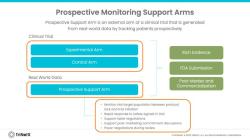What are the best IV fluids for dehydration?
The choice of the best IV (intravenous) fluids for dehydration depends on several factors, including the patient's specific needs, the underlying cause of dehydration, and their medical condition. Healthcare providers typically consider the following criteria when selecting IV fluids for rehydration:
Type of Dehydration:
- Isotonic Dehydration: This is the most common type of dehydration, where water and electrolyte losses are proportionate. Isotonic fluids, such as normal saline (0.9% sodium chloride) or lactated Ringer's solution, are often used for isotonic dehydration.
- Hypotonic Dehydration: In this type, electrolyte losses exceed water losses. Hypotonic fluids, like 0.45% sodium chloride, may be considered in specific cases.
- Hypertonic Dehydration: Rarely, hypertonic solutions are used when there is a need to increase serum osmolality, such as in severe hyponatremia. Examples include 3% sodium chloride.
Electrolyte Composition:
- Different IV fluids contain varying levels of electrolytes (sodium, potassium, chloride, bicarbonate, calcium, and magnesium). The choice of fluid depends on the patient's electrolyte balance and specific requirements.
- For balanced electrolyte replacement, lactated Ringer's solution is often favored due to its composition, which resembles that of extracellular fluid.
Patient Age and Health Status:
- Pediatric patients, geriatric patients, and individuals with certain medical conditions may have unique fluid and electrolyte needs that influence the choice of IV fluids.
Underlying Medical Conditions:
- Some medical conditions may require special considerations. For example, patients with kidney dysfunction may need restricted potassium intake, while those with heart conditions may require careful monitoring of sodium levels.
Volume Needs:
- The volume of IV fluids needed for rehydration depends on the severity of dehydration. Healthcare providers calculate fluid deficits and maintenance requirements to determine the appropriate volume.
Monitoring Capabilities:
- Continuous monitoring of electrolyte levels, particularly potassium and sodium, is important to avoid overhydration or electrolyte imbalances. The type and rate of IV fluid administration may be adjusted based on these measurements.
Commonly Used IV Fluids for Dehydration:
- Normal Saline (0.9% sodium chloride): Isotonic solution containing sodium and chloride ions. It is used for most cases of isotonic dehydration.
- Lactated Ringer's Solution: Isotonic solution containing sodium, potassium, chloride, calcium, and lactate. It is often used for rehydration and in cases of blood loss.
- 0.45% Sodium Chloride (Half-normal saline): Hypotonic solution used when there is a need for less sodium and chloride.
- Dextrose in Water (D5W): Isotonic initially but becomes hypotonic after dextrose is metabolized. It provides calories in addition to fluids and is used in specific situations.
It's important to note that the selection of IV fluids should be made by qualified healthcare professionals based on a thorough evaluation of the patient's condition. Tailoring the choice of IV fluids to the individual patient's needs and ongoing monitoring are essential to prevent complications and ensure effective rehydration. Additionally, the rate of IV fluid administration and any adjustments should follow medical guidelines and protocols.











